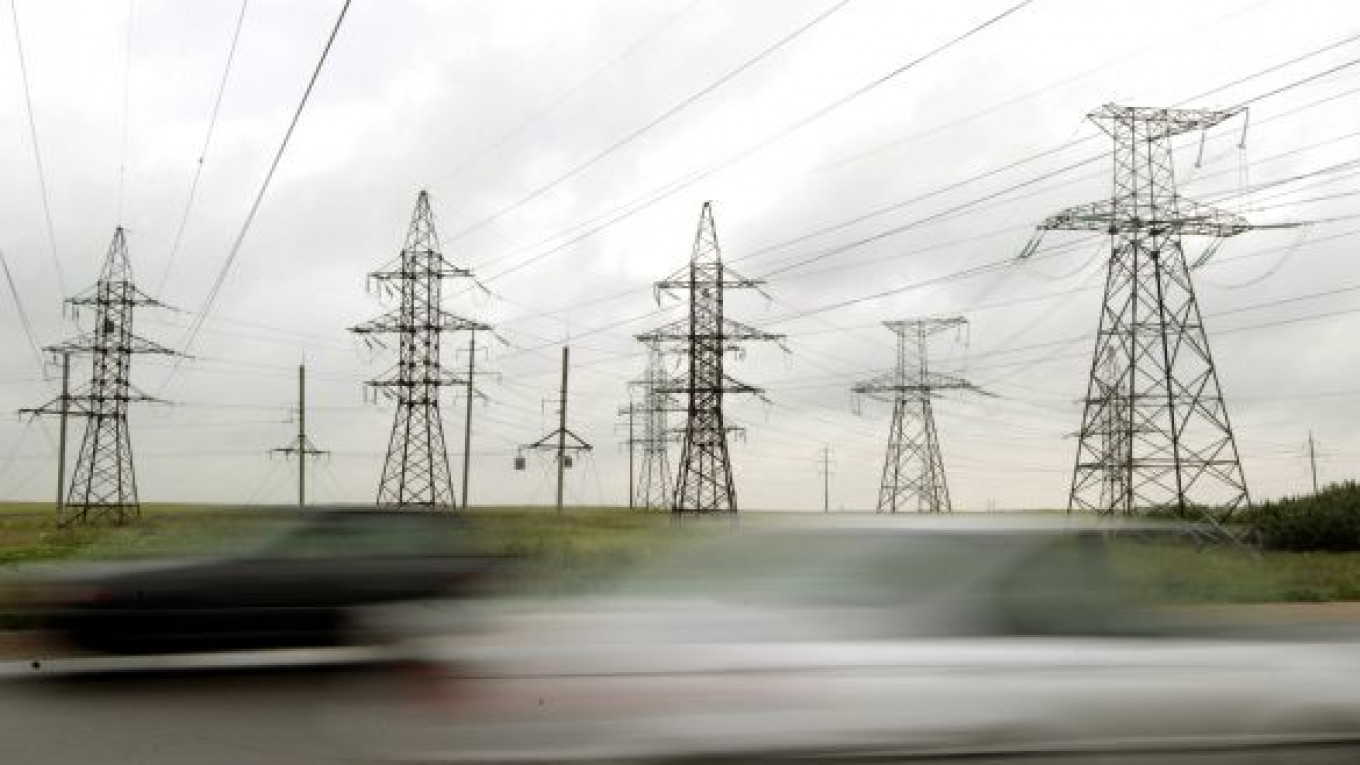Russia cut electricity supplies to Belarus on Wednesday and forced the country, which faces one of the worst economic crises of President Alexander Lukashenko’s 17-year rule, to pay millions of dollars of overdue power bills.
Belarus, struggling with a balance of payments crisis that has forced it to devalue its currency, ran up arrears on electricity imports that make up about 10 percent of its power consumption.
Russian electricity exporter Inter RAO said late Wednesday that it had received payment in full from Minsk and that supplies would be resumed Thursday after it had cut power exports from midnight Tuesday.
Belarus owed 1.2 billion rubles ($43 million) for electricity supplied in March, April and May.
“We received the money,” said Inter RAO spokesman Anton Nazarov, who said exports would start early Thursday.
“From midnight, supplies to Belarus were cut to zero,” he said.
An unidentified official from Belarus’ central bank told Interfax that Minsk would pay its outstanding debts later Wednesday.
Belarus imports power, which is in some cases cheaper than domestically produced electricity, but it has enough capacity at its own power plants to meet local demand.
A Belenergo spokesman confirmed earlier Wednesday that electricity consumers would not suffer due to the shut-off of electricity imports from neighboring Russia.
The power cuts had no visible effect on power consumption in the capital, a witness said.
Deputy Prime Minister Igor Sechin insisted on Tuesday that politics had nothing to do with the electricity dispute with Minsk.
But Moscow is pushing Lukashenko, in power since 1994, to sell off assets which are being eyed by some of Russia’s most powerful business groups.
Belarus’ economic crisis has eroded Lukashenko’s power.
A poll conducted earlier this month by the Independent Institute for Socio-Economic and Political Research said Lukashenko’s approval ratings dropped from 53 percent last fall to 29 percent. The poll of 1,503 respondents had a margin of error of 3 percentage points.
Social media activists have organized a series of weekly rallies, which attracted thousands of mostly young participants clapping their hands and stomping their feet to protest the government’s economic course.
Police disbanded the gatherings in Minsk and other Belarussian cities and detained more than 450 people after last week’s rally.
Another such protest was set for Wednesday.
Trying to prevent the protests from growing, the Belarussian Defense Ministry issued a statement warning that half of those detained during the past rally were draft dodgers who will be conscripted.
The organizers of the protests braved the threats, calling on participants to show that “there are more of us than police cars can carry.”
(Reuters, AP, MT)
A Message from The Moscow Times:
Dear readers,
We are facing unprecedented challenges. Russia's Prosecutor General's Office has designated The Moscow Times as an "undesirable" organization, criminalizing our work and putting our staff at risk of prosecution. This follows our earlier unjust labeling as a "foreign agent."
These actions are direct attempts to silence independent journalism in Russia. The authorities claim our work "discredits the decisions of the Russian leadership." We see things differently: we strive to provide accurate, unbiased reporting on Russia.
We, the journalists of The Moscow Times, refuse to be silenced. But to continue our work, we need your help.
Your support, no matter how small, makes a world of difference. If you can, please support us monthly starting from just $2. It's quick to set up, and every contribution makes a significant impact.
By supporting The Moscow Times, you're defending open, independent journalism in the face of repression. Thank you for standing with us.
Remind me later.






